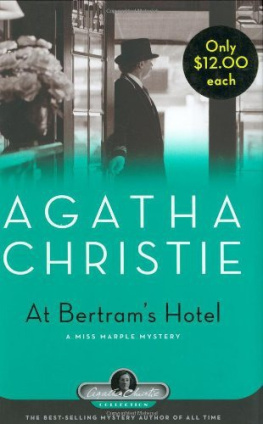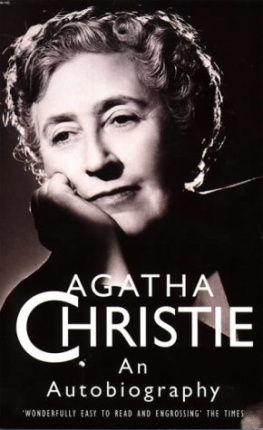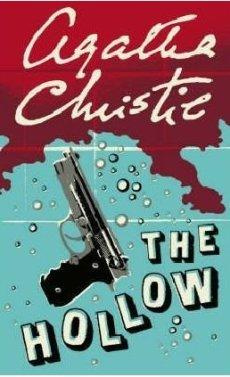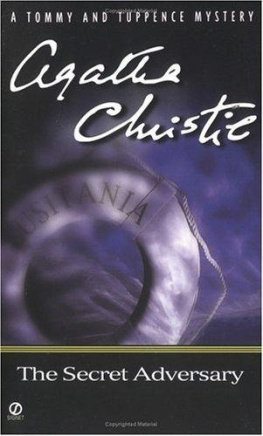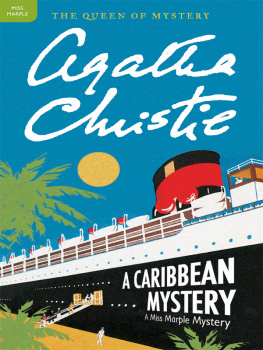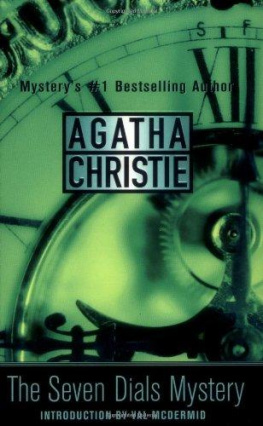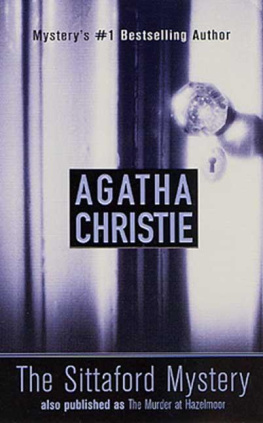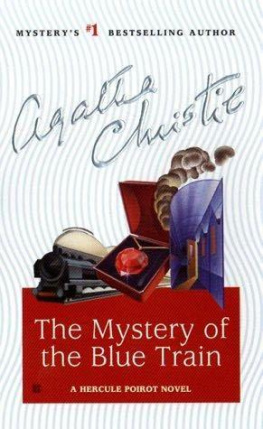Agatha Christie - The Seven Dials Mystery
Here you can read online Agatha Christie - The Seven Dials Mystery full text of the book (entire story) in english for free. Download pdf and epub, get meaning, cover and reviews about this ebook. genre: Detective and thriller. Description of the work, (preface) as well as reviews are available. Best literature library LitArk.com created for fans of good reading and offers a wide selection of genres:
Romance novel
Science fiction
Adventure
Detective
Science
History
Home and family
Prose
Art
Politics
Computer
Non-fiction
Religion
Business
Children
Humor
Choose a favorite category and find really read worthwhile books. Enjoy immersion in the world of imagination, feel the emotions of the characters or learn something new for yourself, make an fascinating discovery.

- Book:The Seven Dials Mystery
- Author:
- Genre:
- Rating:3 / 5
- Favourites:Add to favourites
- Your mark:
- 60
- 1
- 2
- 3
- 4
- 5
The Seven Dials Mystery: summary, description and annotation
We offer to read an annotation, description, summary or preface (depends on what the author of the book "The Seven Dials Mystery" wrote himself). If you haven't found the necessary information about the book — write in the comments, we will try to find it.
The Seven Dials Mystery — read online for free the complete book (whole text) full work
Below is the text of the book, divided by pages. System saving the place of the last page read, allows you to conveniently read the book "The Seven Dials Mystery" online for free, without having to search again every time where you left off. Put a bookmark, and you can go to the page where you finished reading at any time.
Font size:
Interval:
Bookmark:
Agatha Christie
The Seven Dials Mystery
Chapter 1
ON EARLY RISING
That amiable youth, Jimmy Thesiger, came racing down the big staircase at Chimneys two steps at a time. So precipitate was his descent that he collided with Tredwell, the stately butler, just as the latter was crossing the hall bearing a fresh supply of hot coffee. Owing to the marvellous presence of mind and masterly agility of Tredwell, no casualty occurred.
"Sorry," apologised Jimmy. "I say, Tredwell, am I the last down?"
"No, sir. Mr. Wade has not come down yet."
"Good," said Jimmy, and entered the breakfast-room.
The room was empty save for his hostess, and her reproachful gaze gave Jimmy the same feeling of discomfort he always experienced on catching the eye of a defunct codfish exposed on a fishmonger's slab. Yet, hang it all, why should the woman look at him like that? To come down at a punctual nine-thirty when staying in a country house simply wasn't done. To be sure, it was now a quarter past eleven which was, perhaps, the outside limit, but even then
"Afraid I'm a bit late, Lady Coote. What?"
"Oh, it doesn't matter," said Lady Coote in a melancholy voice.
As a matter of fact, people being late for breakfast worried her very much. For the first ten years of her married life, Sir Oswald Coote (then plain Mr.) had, to put it baldly, raised hell if his morning meal were even a half-minute later than eight o'clock . Lady Coote had been disciplined to regard unpunctuality as a deadly sin of the most unpardonable nature. And habit dies hard.
Also, she was an earnest woman, and she could not help asking herself what possible good these young people would ever do in the world without early rising. As Sir Oswald so often said, to reporters and others: "I attribute my success entirely to my habits of early rising, frugal living, and methodical habits."
Lady Coote was a big, handsome woman in a tragic sort of fashion. She had large, dark, mournful eyes and a deep voice. An artist looking for a model for "Rachel mourning for her children" would have hailed Lady Coote with delight. She would have done well, too, in melodrama, staggering through the falling snow as the deeply wronged wife of the villain.
She looked as though she had some terrible secret sorrow in her life, and yet if the truth be told, Lady Coote had had no trouble in her life whatever, except the meteoric rise to prosperity of Sir Oswald. As a young girl she had been a jolly flamboyant creature, very much in love with Oswald Coote, the aspiring young man in the bicycle shop next to her father's hardware store. They had lived very happily, first in a couple of rooms, and then in a tiny house, and then in a larger house, and then in successive houses of increasing magnitude, but always within a reasonable distance of "the Works," until now Sir Oswald had reached such an eminence that he and "the Works" were no longer interdependent, and it was his pleasure to rent the very largest and most magnificent mansions available all over England. Chimneys was a historic place, and in renting it from the Marquis of Caterham for two years, Sir Oswald felt that he had attained the top notch of his ambition.
Lady Coote was not nearly so happy about it. She was a lonely woman. The principal relaxation of her early married life had been talking to "the girl" and even when "the girl" had been multiplied by three, conversation with her domestic staff had still been the principal distraction of Lady Coote's day. Now, with a pack of housemaids, a butler like an archbishop, several footmen of imposing proportions, a bevy of scuttling kitchen and scullery maids, a terrifying foreign chef with a "temperament", and a housekeeper of immense proportions who alternately creaked and rustled when she moved, Lady Coote was as one marooned on a desert island.
She sighed now, heavily, and drifted out through the open window, much to the relief of Jimmy Thesiger, who at once helped himself to more kidneys and bacon on the strength of it.
Lady Coote stood for a few moments tragically on the terrace and then nerved herself to speak to MacDonald, the head gardener, who was surveying the domain over which he ruled with an autocratic eye.
MacDonald was a very chief and prince among head gardeners. He knew his place which he was to rule. And he ruled despotically. Lady Coote approached him nervously.
"Good-morning, MacDonald."
"Good-morning, malady."
He spoke as head gardeners should speak mournfully, but with dignity like an emperor at a funeral.
"I was wondering could we have some of those late grapes for dessert tonight?"
"They're no fit for picking yet," said MacDonald.
He spoke kindly but firmly.
"Oh!" said Lady Coote.
She plucked up courage.
"Oh! but I was in the end house yesterday, and I tasted one and they seemed very good."
MacDonald looked at her, and she blushed.
She was made to feel that she had taken an unpardonable liberty. Evidently the late Marchioness of Caterham had never committed such a solecism as to enter one of her own hothouses and help herself to grapes.
"If you had given orders, m'lady, a bunch should have been cut and sent in to you," said MacDonald severely.
"Oh, thank you," said Lady Coote. "Yes, I will do that another time."
"But they're no properly fit for picking yet."
"No," murmured Lady Coote, "no, I suppose not. We'd better leave it then."
MacDonald maintained a masterly silence. Lady Coote nerved herself once more.
"I was going to speak to you about the piece of lawn at the back of the rose garden. I wondered if it could be used as a bowling green . Sir Oswald is very fond of a game of bowls."
"And why not?" thought Lady Coote to herself. She had been instructed in her history of England . Had not Sir Francis Drake and his knightly companions been playing a game of bowls when the Armada was sighted? Surely a gentlemanly pursuit and one to which MacDonald could not reasonably object. But she had reckoned without the predominant trait of a good head gardener, which is to oppose any and every suggestion made to him.
"Nae doot it could be used for that purpose," said MacDonald non-comittally.
He threw a discouraging flavour into the remark, but its real object was to lure Lady Coote on to her destruction.
"If it was cleared up and er cut and er all that sort of thing," she went on hopefully.
"Aye," said MacDonald slowly. "It could be done. But it would mean taking William from the lower border."
"Oh!" said Lady Coote doubtfully. The words "lower border" conveyed absolutely nothing to her mind except a vague suggestion of a Scottish song but it was clear that to MacDonald they constituted an insuperable objection.
"And that would be a pity," said MacDonald.
"Oh, of course," said Lady Coote. "It would."
And wondered why she agreed so fervently.
MacDonald looked at her very hard.
"Of course," he said, "if it's your orders, m'lady "
He left it like that. But his menacing tone was too much for Lady Coote. She capitulated at once.
"Oh, no," she said. "I see what you mean, MacDonald. N-no William had better get on with the lower border."
"That's what I thocht meself, m'lady."
"Yes," said Lady Coote. "Yes. Certainly."
"I thocht you'd agree, m'lady," said MacDonald.
"Oh, certainly," said Lady Coote again.
MacDonald touched his hat and moved away.
Lady Coote sighed unhappily and looked after him. Jimmy Thesiger, replete with kidneys and bacon, stepped out on to the terrace beside her and sighed in quite a different manner.
"Topping morning, eh?" he remarked.
"Is it?" said Lady Coote absently. "Oh, yes, I suppose it is. I hadn't noticed."
"Where are the others? Punting on the lake?"
Font size:
Interval:
Bookmark:
Similar books «The Seven Dials Mystery»
Look at similar books to The Seven Dials Mystery. We have selected literature similar in name and meaning in the hope of providing readers with more options to find new, interesting, not yet read works.
Discussion, reviews of the book The Seven Dials Mystery and just readers' own opinions. Leave your comments, write what you think about the work, its meaning or the main characters. Specify what exactly you liked and what you didn't like, and why you think so.

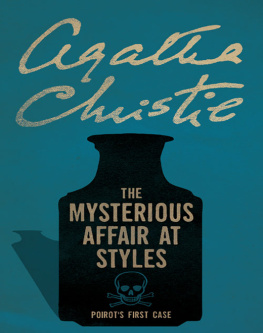
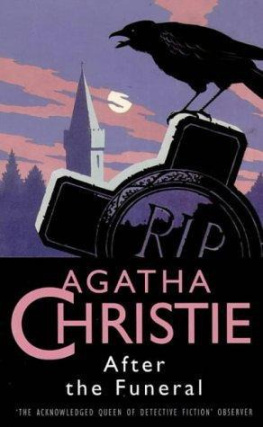
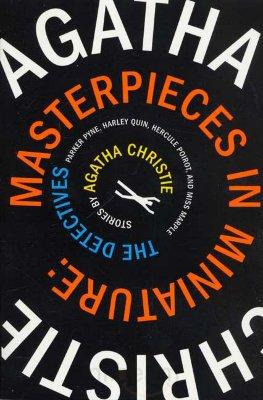
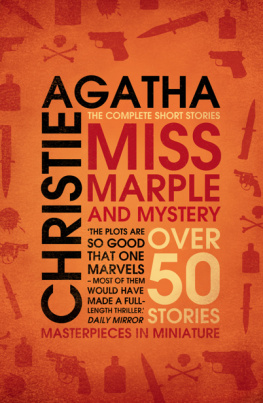
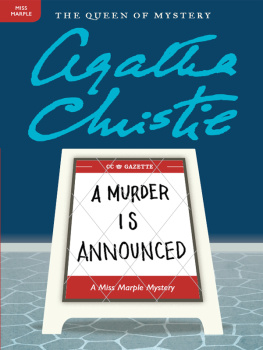
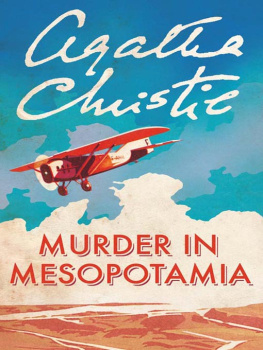

![Agatha Christie [Agatha Christie] - Problem at Pollensa Bay](/uploads/posts/book/140367/thumbs/agatha-christie-agatha-christie-problem-at.jpg)
